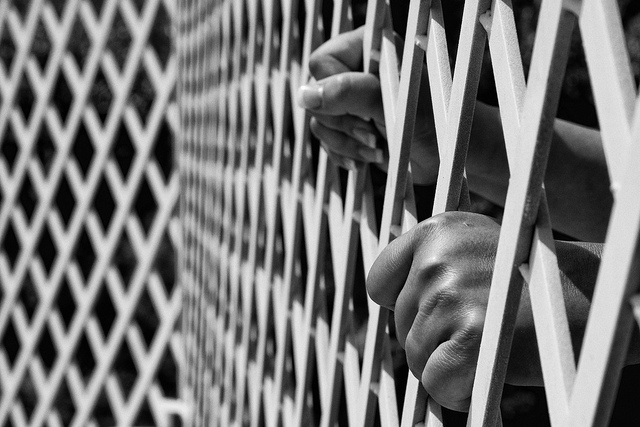When grace offends
Everyone loves a dramatic conversion story. The minister’s son who turns from a life of wild debauchery to passionate surrender to Jesus. The violent criminal and drug addict who is set free to proclaim the gospel by God’s amazing grace.
And yet at some point this grace business feels really wrong.
When I asked my editor if he had read in the Sydney Morning Herald about Bronson Blessington, the killer of Janine Balding in 1988, becoming a Christian, he recoiled in horror. Even though the crime took place almost 30 years ago, its cruelty was so vivid that he just couldn’t bring himself to read the article.
It made me wonder: how could it be fair that a man who raped and brutally killed a young woman on her way home from work, apparently for thrills, should go to heaven, while his victim would rot in hell unless she believed in Jesus?
It feels wrong that God would allow this.
 Blessington is a killer whose crime was so awful the law was changed so that he would remain in jail for the rest of his life.
Blessington is a killer whose crime was so awful the law was changed so that he would remain in jail for the rest of his life.
There was a similar case in the UK back in the 1960s. Moors murderer Myra Hindley, jailed for the sadistic killing of five children with her boyfriend Ian Brady, turned to Christ. The woman dubbed “the most evil woman in Britain” reportedly repented of her sins and became a Christian.
My intellect accepts that this is how God’s grace works. At church I’m happy to sing of “the vilest offender who truly believes, that moment from Jesus a pardon receives”.
In fact, the Bible shows me how much right conduct matters to God, and yet the Apostle Paul in Romans shows me how impossible this is. The horrifying list in Romans 1 is not there for nothing. Look closely and we’ll all find ourselves in there: “They have become filled with every kind of wickedness, evil, greed and depravity. They are full of envy, murder, strife, deceit and malice.”
It is strange to me that envy and murder sit side by side in that list. Can they really be sins of the same magnitude? I cannot think they are equal, even as I fully acknowledge that both the envious person and the murderer find forgiveness in the same place: at the cross of Jesus. He died for me, and for Bronson Blessington.
Yet at gut level this grace offends me. It feels wrong that God would allow this. And I hate that I feel this way about God’s grace, which has rescued me from my life of sin and hedonism.
I can remind myself that God’s grace is “measureless” and can expiate the most horrendous evil; that it wouldn’t be so amazing if Jesus only died for the fairly decent sinners among us. I remember the thief on the cross and how Jesus didn’t ask him whether he had killed or tortured anyone. Just by placing his trust in the happy-ever-after he saw in Jesus’ eyes, he was instantly saved, and taken to paradise.
I know I should be satisfied with all this biblical evidence about the breadth and length and height and depth of the grace of God, but something still doesn’t feel right.
What if God in pursuing his holy purposes really is unfair? Because that’s exactly what I think of the salvation of Bronson Blessington and Myra Hindley: that it is unfair that they get to enjoy heaven while their victims do not.
I find myself hoping that there is a special category of salvation for those whose opportunity for repentance has been cruelly cut short, like Janine Balding, just as I trust God shows mercy to stillborn babies. And if there is not, then I am forced to remember that my only other recourse is to trust God. The true balm for the senseless suffering in the world to know that one day God, in his wisdom and mercy, will set right all injustice.
Simon Manchester, Rector of St Thomas’s, North Sydney, has been visiting Bronson Blessington in Parklea Prison in Sydney for the past 12 years and has developed a friendship with him.
“I was immediately struck by the fact that he was very gentle, he was very humble, he was very broken about what he’d done,” Simon told Radio station Hope 103.2.
“There was no blaming or playing games. He was more interested in me than he was in himself, and he was deeply grateful for Jesus Christ.”
Image: Flickr, Tiago Pinheiro | Used under CC licence
Email This Story
Why not send this to a friend?

